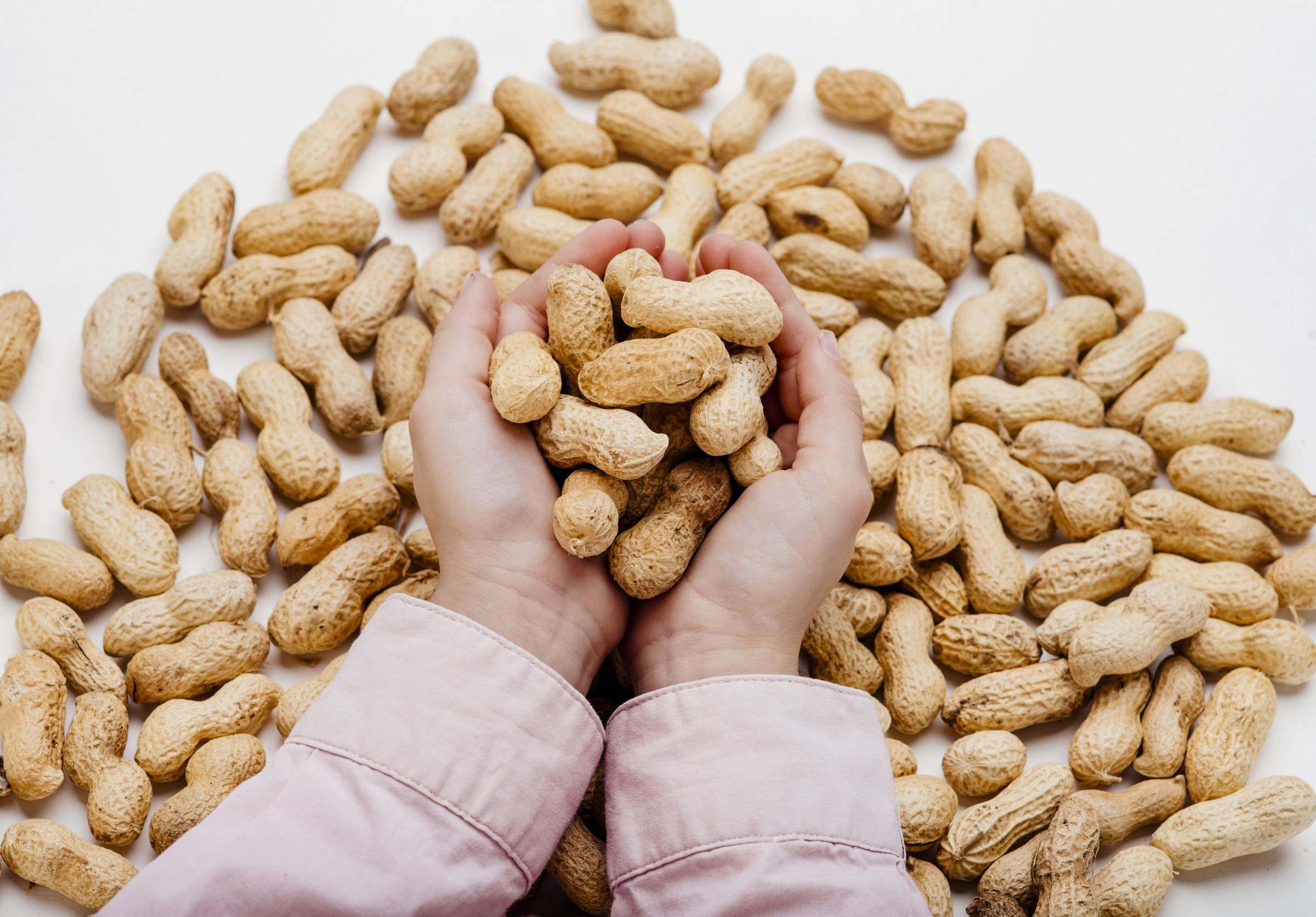“No one was allergic to peanuts when I was a kid!” Many adults over 40 have made this observation and wondered why peanut allergies are so common in their children’s generation. However, a simple practice may protect future generations from developing this often-dangerous allergy.
The rise in peanut allergies may have resulted from an overreaction to what used to be a rare, albeit sometimes serious, condition. Beginning in the late 1990s, pediatricians and allergists in many countries advised pregnant women to avoid eating peanuts in an attempt to prevent peanut allergy in their children.
Guidelines released during the early 2000s advised against babies consuming peanuts, Gideon Lack, professor of pediatric allergy at King’s College London, told The Epoch Times in an email. However, research since the mid-2010s has shown this advice was misguided—and may have had the reverse effect of increasing the prevalence of peanut allergy.
The Learning Early About Peanut Allergy (LEAP) study, launched in 2010 and published in 2015, was the first large study to challenge the old assumptions about peanut allergies. Designed by the Immune Tolerance Network with support from the group Food Allergy Research & Education, LEAP followed 640 children from infancy to age 5. One group of children in the study did not eat peanut products, while the other ate foods made with peanuts several times a week.
The LEAP researchers found that introducing peanuts to infants at high risk for allergies (those with severe eczema, egg allergy, or both) reduced the likelihood of these children developing a peanut allergy by more than 80 percent. A follow-up study published the following year (LEAP-On) found that in these children, a 12-month period of peanut avoidance “was not associated with an increase in the prevalence of peanut allergy.”
Pediatricians changed their stance on peanut consumption to follow the new guidance. The American Academy of Pediatrics in September 2015 released a statement of endorsement regarding the LEAP findings. The group advised health care providers to recommend introducing peanut-containing products into the diets of “high-risk” infants between 4 and 11 months of age “in countries where peanut allergy is prevalent because delaying the introduction of peanut can be associated with an increased risk of peanut allergy.”
The American Academy of Allergy, Asthma & Immunology states that allergenic foods should be introduced to babies beginning at 4 to 6 months.
Despite these recommendations, “there is still a significant lack of awareness of the new guidelines, and even when doctors and patients are aware of the guidelines, there remains a fear about early introduction of peanut,” Mr. Lack told The Epoch Times.
A New Study Adds Evidence
Mr. Lack was a co-lead investigator of the LEAP-Trio study, designed to build on the results of the LEAP trial. Released on May 28 by the journal NEJM Evidence, the LEAP-Trio study provides additional proof that introducing peanuts into a child’s diet early will prevent peanut allergy later in life. The long-term investigation performed by researchers at King’s College London followed the children involved in the initial LEAP study to age 12 or older.
Those children who ate peanuts as infants in the original LEAP study were protected from peanut allergy—15.4 percent of subjects in the peanut-avoidance group had peanut allergy at age 12 or older—compared to 4.4 percent of subjects in the peanut-consumption group, the LEAP-Trio study determined.
“The findings have the potential to reduce peanut allergy by more than 80 percent, but it will take time for the guidelines to be properly translated into clinical practice,” Mr. Lack told The Epoch Times.
Professor George Du Toit, co-lead investigator, and also of King’s College London, said in a statement: “This is a safe and highly effective intervention which can be implemented as early as 4 months of age. The infant needs to be developmentally ready to start weaning and peanut should be introduced as a soft pureed paste or as peanut puffs.”
What Changed Our Thinking About Peanuts?
The possibility that their children might develop a peanut allergy was not always a top concern among parents of infants. “The peanut allergy did not comprise a pronounced medical research agenda prior to the 1980s, nor did it appear in media headlines with much frequency. At that time, an allergy to peanuts was considered a rare malady,” Miranda R. Waggoner wrote in a 2013 article “Parsing the Peanut Panic.”
Ms. Waggoner, who has a doctorate in sociology and social policy and is now an associate professor of sociology at Rice University, posited that both medical professionals and laypeople overreacted to a rare allergy by falsely labeling it an “epidemic” and banning peanuts from children’s diets.
The epidemic of the allergy in children “launched” in Western nations in the late 1980s and early 1990s, according to Heather Fraser, author of the 2011 book “The Peanut Allergy Epidemic: What’s Causing It and How to Stop It” (third edition 2017).
“Over four million people in the United States alone are affected by peanut allergies, while there are no reported cases in India, a country where peanuts are the primary ingredient in many baby food products,” she wrote.
A UK study published in 2002 in the Journal of Allergy and Clinical Immunology also found a rising prevalence of sensitivity to peanut among British children born in the years 1989 and 1990 and those between 1994 and 1996. Peanut allergy increased two-fold, while peanut sensitization increased three-fold.
By 2011, in the United States, Canada, the UK, Australia, and Sweden, the chance that a child—especially a boy—would develop a peanut allergy was one in 50, Ms. Fraser wrote.
Ms. Fraser also believes that increased numbers of childhood vaccines have played a part, “skewing” children’s immune systems and putting them at risk of developing allergies, she wrote in a 2018 Epoch Times article.
In his foreword to the 2017 edition of Ms. Fraser’s book, Robert F. Kennedy Jr., founder of Children’s Health Defense, noted she solves “the anaphylaxis puzzle” by revealing the connection between vaccinations, anaphylaxis, and allergy. “Medical literature shows how powerful adjuvants (most notably, aluminum), added to vaccines in order to increase the immunological response, also amplify the allergic response,” he wrote.
As the rates of peanut allergies rose, official medical guidelines in the UK and the United States that discouraged oral exposure to peanuts during pregnancy, breastfeeding, and infancy, while well-intended, may have exacerbated the problem. They may have “promoted allergic sensitisation by creating a situation where there is environmental cutaneous exposure in the absence of early oral tolerance induction. This imbalance in the routes of allergen presentation may favour the development of allergic sensitisation,” wrote Mr. Lack for the Immune Tolerance Network, which conducted the LEAP studies.
However, the LEAP studies offer the promise of fewer children having to contend with peanut allergies in the future. Mr. Lack told King’s College London, “Early consumption of peanut will prevent more than 100,000 new cases of peanut allergy every year worldwide.”









